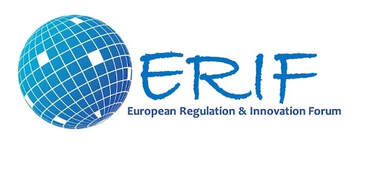Throughout the OECD area, Better Regulation has become an important philosophy of governance. It strengthens consent to law-making and to the actions of the State to implement legal requirements through regulation, guidance, and standards. The EU is a world-leader in the application of Better Regulation principles and practices at all phases of the policy-cycle.
Better Regulation helps governments ensure predictability; avoid regulatory failure; and sustain legitimacy. It matters most when governments are set out to deliver complex and radical policies that require extensive legal and regulatory decision-making, such as the European Green Deal.
Better Regulation programmes seek to ensure that laws, and the actions taken to implement them, are:
Tools such as stakeholder engagement, impact assessment, standards of scientific integrity, and ex post evaluation, supported by institutionalised oversight, political commitments, and laws of administrative procedure, are among the means by which the goals of Better Regulation are delivered on a daily basis.
The ERIF does not seek to promote any specific set of values, ideologies, or interests. Instead we consider high quality risk assessment ,risk management and other regulatory decisions as being in the public interest. We work with all EU institutions and bodies to promote ideas and debate. Original research is produced and is made widely available for free here.
As an expert group, we bring together multiple sources of evidence (such as the experience of practitioners and policy-makers; non-EU good practices; and academic research) to assess issues and to identify new ideas. We directly engage in EU regulatory reform debates through targeted events (webinars, lunches, and roundtables). We also regularly contribute to public consultations launched by the EU institutions. A key feature of our approach is the emphasis on expert-to-expert dialogue to share views and learn from good practices.
Better Regulation helps governments ensure predictability; avoid regulatory failure; and sustain legitimacy. It matters most when governments are set out to deliver complex and radical policies that require extensive legal and regulatory decision-making, such as the European Green Deal.
Better Regulation programmes seek to ensure that laws, and the actions taken to implement them, are:
- necessary, effective and proportionate (resting on a rigorous definition of the policy objectives as well as clear and comprehensive description and assessment of problems and their underlying causes);
- based on credible evidence, particularly science, that supports the use of the powers of the State;
- informed by a robust and transparent understanding of costs and benefits, particularly dynamic impacts such as risk-risk;
- demonstrate that benefits justify costs;
- developed using transparent and participatory decision-making processes; and
- reviewable over time and subject to appeals and redress mechanisms.
Tools such as stakeholder engagement, impact assessment, standards of scientific integrity, and ex post evaluation, supported by institutionalised oversight, political commitments, and laws of administrative procedure, are among the means by which the goals of Better Regulation are delivered on a daily basis.
The ERIF does not seek to promote any specific set of values, ideologies, or interests. Instead we consider high quality risk assessment ,risk management and other regulatory decisions as being in the public interest. We work with all EU institutions and bodies to promote ideas and debate. Original research is produced and is made widely available for free here.
As an expert group, we bring together multiple sources of evidence (such as the experience of practitioners and policy-makers; non-EU good practices; and academic research) to assess issues and to identify new ideas. We directly engage in EU regulatory reform debates through targeted events (webinars, lunches, and roundtables). We also regularly contribute to public consultations launched by the EU institutions. A key feature of our approach is the emphasis on expert-to-expert dialogue to share views and learn from good practices.
